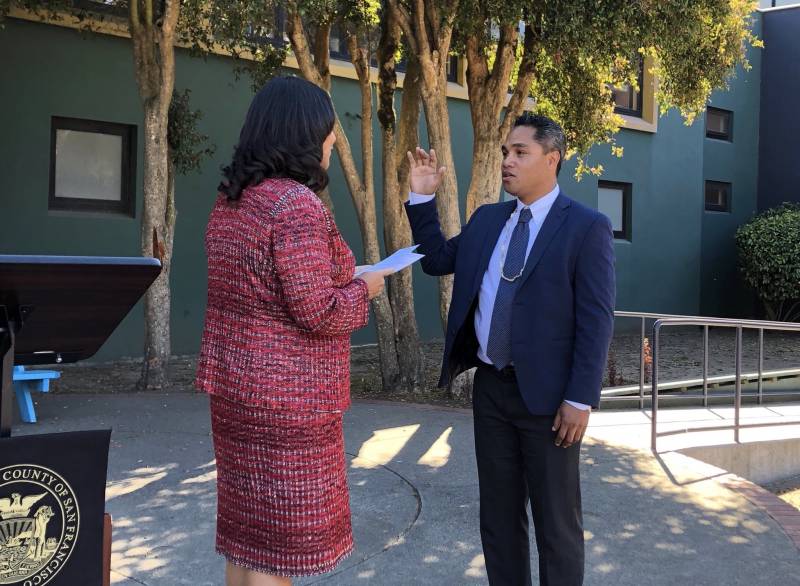What role do you think race plays in the recall?
As the first Pacific Islander to ever run for the school board, it’s critical. One of the reasons I ran is because Pacific Islanders were not doing well. And the reason why they were not doing well was because there’s a lot of systemic barriers that have really been a hindrance for the growth of Pacific Islanders in the city. So having a voice at the table and being able to advocate for things like the Fa’a Sāmoa Initiative, the Samoa Community Development (Center) learning hub, those things just don’t show up if you don’t have a seat at the table.
In terms of being equitable and being able to serve all your constituents and families that live in the city, you have to have representation, especially for those groups that are marginalized the most. And so race, it really matters to public education.
One of the biggest criticisms from recall supporters is around the reopening of schools as well as feelings from parents of not being heard, the board not recognizing their suffering during the pandemic and their kids’ mental health issues. They point specifically to evidence of learning loss among the most marginalized students in the district. What do you say to them?
One thing that you didn’t hear a lot during the pandemic publicly was voices from the marginalized communities. So for me, going out there and meeting with families in projects, indigenous communities, Black communities, Latinx immigrant communities and trying to figure out what are their needs (was important) because they’re not the ones that are showing up at the school board meetings. They don’t have that kind of access.
This thing around learning loss and the opportunity gap, they kind of go hand in hand. The same students that were facing challenges prior to the pandemic are the same students that were also impacted during the pandemic. Because these are the communities that are currently impacted. If we weren’t able to get resources to them as a city and county and a school district prior to (the pandemic) it is going to be really tough for us to do it now. And so, as a school district, we did our best, we did a lot of things: we opened up lunches every day, breakfast every day, fed the whole entire city of San Francisco. We provided technology for all the kids that didn’t have it.
I know things weren’t perfect, and if people felt unseen during that time, I personally would just like to say we could have done better. I apologize if that was how people felt during that time, and I’m committed to continue to work and to make sure that all our families are heard.
In the context of the budget crisis, I hear a lot of criticism about the board’s fiscal stewardship. How do you defend your track record?
Now that we’re coming out of the pandemic, we’re finally able to address it in a way that makes sense for not only the school district but also our partners, including our labor partners. When I first came on, I knew we were going into a budget deficit. Repeatedly I said we have to continue doing things that are going to cost-save. It’s not an easy issue that we’re working on right now, but I do feel confident that we’re going to be able to get a balanced budget and not have the school district be taken over.

